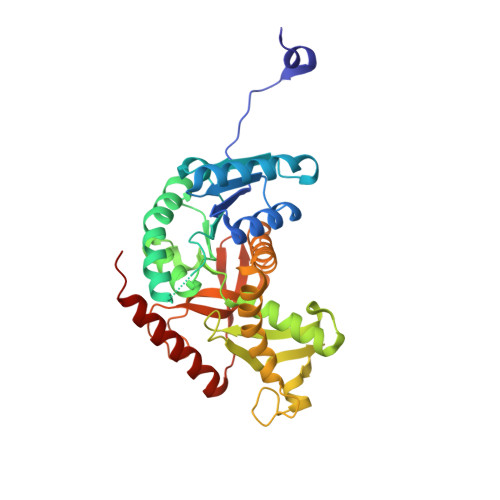Cell Active Hydroxylactam Inhibitors of Human Lactate Dehydrogenase with Oral Bioavailability in Mice.
Purkey, H.E., Robarge, K., Chen, J., Chen, Z., Corson, L.B., Ding, C.Z., DiPasquale, A.G., Dragovich, P.S., Eigenbrot, C., Evangelista, M., Fauber, B.P., Gao, Z., Ge, H., Hitz, A., Ho, Q., Labadie, S.S., Lai, K.W., Liu, W., Liu, Y., Li, C., Ma, S., Malek, S., O'Brien, T., Pang, J., Peterson, D., Salphati, L., Sideris, S., Ultsch, M., Wei, B., Yen, I., Yue, Q., Zhang, H., Zhou, A.(2016) ACS Med Chem Lett 7: 896-901
- PubMed: 27774125
- DOI: https://doi.org/10.1021/acsmedchemlett.6b00190
- Primary Citation of Related Structures:
5IXS, 5IXY - PubMed Abstract:
A series of trisubstituted hydroxylactams was identified as potent enzymatic and cellular inhibitors of human lactate dehydrogenase A. Utilizing structure-based design and physical property optimization, multiple inhibitors were discovered with <10 μM lactate IC 50 in a MiaPaca2 cell line. Optimization of the series led to 29 , a potent cell active molecule (MiaPaca2 IC 50 = 0.67 μM) that also possessed good exposure when dosed orally to mice.
Organizational Affiliation:
Genentech, Inc. , 1 DNA Way, South San Francisco, California 94080, United States.



















